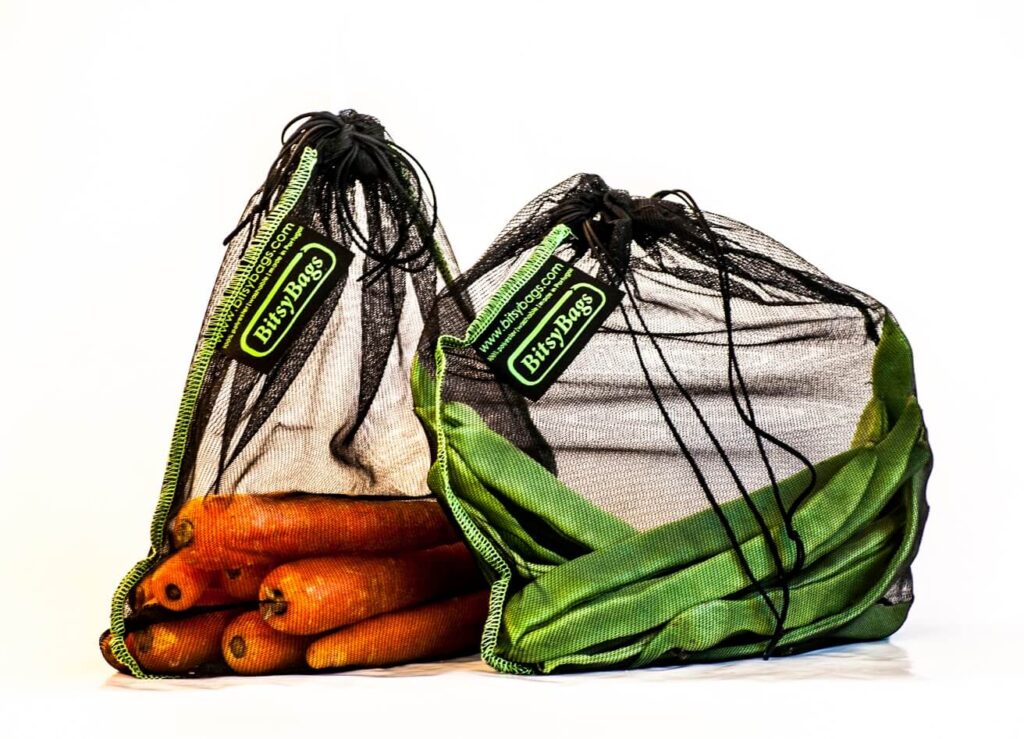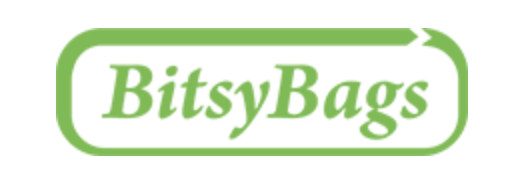Plastics are everywhere and global plastics production hit the record of 459.75 million tonnes in 2019.[1] Regrettably, only 9% of the plastic waste is recycled and 22% of it was mismanaged in 2019.[2] As a result, every year around 12 million tonnes of plastics are entering the oceans[3] and 19-23 million tonnes of them are leaking to the entire aquatic ecosystems.[4] Even though easy and inexpensive to produce whereas lightweight, versatile and resistant for use, plastic products brought huge economic losses along with significant damages to the ecosystem, human health, biodiversity and livelihoods.
Yet, there are alternatives to plastic products and innovative solutions convey even more of them. In this regard, a start-up made strides to save the planet: “Bitsy Bags”. Founded in Barcelona, Bitsy Bags sells recycled and reusable bags for grocery shopping as a substitute for the single-use plastics. We would like to highlight that their shipments are also eco-friendly such that their packaging and wrapping are plastic free.

Bitsy Bags distributes its bags to several stores that can be used for more than 5 years, roughly equivalent to 1,000 single-use plastic bags. Moreover, their sustainable bags are tested by Eurofins, ensuring that the bags do not release any substance into the foods contacted with the bag. The company provides customization options for its products. Customers can choose the capacity of the bag in addition to design features such as product label, colors and font styles.
The data suggest that plastic waste per person is higher in high-income countries but managed more effectively than in low-income countries.[5] The World Bank Group suggests the implementation of a mixed set of policy instruments to effectively cope with plastic pollution.[6] Through sound fiscal and regulatory mechanisms, policymakers will need to engage with the private sector more comprehensively to promote sustainable business practices. Thus, Bitsy Bags demonstrates a good example: the company successfully received funding from the European Regional Development Fund that supports SMEs.
There is a growing consensus on the need for a global agreement aiming to prevent plastic pollution. We believe that the company can focus on export markets where the plastic pollution is intensive and the regulatory environment is lame. We project a large and growing market potential to sell the bags and attract investors globally.
[1] https://ourworldindata.org/plastic-pollution
[2] Organisation for Economic Co-operation and Development. (2022). Global plastics outlook: Economic drivers, environmental impacts and policy options. OECD Publishing.
[3] Boucher, J., & Friot, D. (2017). Primary microplastics in the oceans: a global evaluation of sources (Vol. 10). Gland, Switzerland: IUCN.
[4] https://leap.unep.org/content/basic-page/plastics-pollution-toolkit-about
[5] https://ourworldindata.org/plastic-pollution
[6] Arri, D., & Peszko, G. (2022). Where is the value in the chain? Pathways out of plastic pollution. World Bank.

